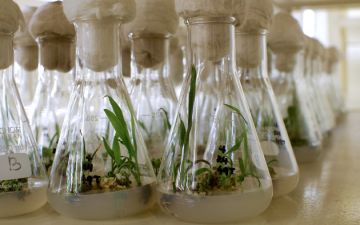Palm oil—found in hundreds of food products and cosmetics consumed and used in the Western world—has been strongly scrutinized for its destructive environmental impacts. Ecologically diverse and sensitive land areas, such as rainforests and peatlands, must be cleared to grow palm oil, and the cultivation of this oil crop inundates the environment with greenhouse gases.
But for Malaysia and Indonesia, who cumulatively produce 85 to 90 percent of the world’s supply of palm oil, the crop is a multi-billion dollar industry. And the world will only need more palm oil in the years to come: global demand is projected to double between 2000 and 2030, and triple between 2000 and 2050.
As the world’s thirst for palm oil increases, the stakeholders in the industry are faced with a dilemma: how can they produce more oil without cutting down more forests? How can they produce more oil in a way that is economically and socially sustainable for everyone?
While a worldwide consortium of scientists has already been looking to increase the productivity of the crop using biotechnology so that more oil can be produced on less land, these new techniques will have to be implemented on the ground by policy-makers and stakeholders. What’s more, palm oil needs to be grown in a socially sustainable manner: currently, many plantations rely on trafficked workers for labor.
Wudan Yan's reporting project seeks to answer two questions: can science help improve the world's most hated, albeit necessary, crop? And, what are the social issues that persist in growing palm oil in Southeast Asia?





